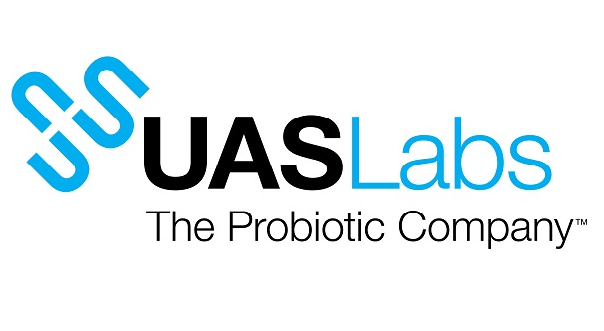Promotional Features
Probiotics: Moving beyond gut health by applying scientific rigor to emerging opportunities
Probiotics have grown into a $40bn-a-year business on the strength of their ability to support digestive health. Yet, research suggests the big opportunities that could drive the next $40bn of growth lie beyond the gut. Researchers have accrued compelling evidence linking probiotics to heart health, vitamin D levels and respiratory well-being. Companies that seize these opportunities and sure-footedly assess fast-emerging, earlier-stage research will be best placed to succeed.
The probiotics market is, and in the near term will remain, a gut health market. This is the health niche that accounts for most of the roughly $40bn a year consumers spend on probiotics. It is also the field in which researchers have most extensively validated the credentials of probiotics through randomized clinical trials.
Multiple Cochrane meta-analyses of probiotic clinical trials have found evidence linking the use of bacteria to improved digestive health outcomes, such as reductions in the duration and severity of diarrhea and protection from antibiotic-associated diarrhea. Such rigorous assessments of well-run clinical trials have shown the historical benefits associated with probiotics stand up to scientific scrutiny.
The probiotic sector is now applying this scientific rigor to opportunities outside the gut. Some of these opportunities have been validated by research conducted in recent years. Others, such as those relating to weight management and the gut-brain axis, are more speculative but stand to reshape the probiotic market and how people manage their health if validated in the clinic.
Maintaining heart health with probiotics
UAS Labs has played a major role in the advancement of probiotics beyond gut health through the development of its heart health strain Lactobacillus reuteri NCIMB 30242 (LRC). The team selected the strain for its elevated activity of bile salt hydrolase, an enzyme that plays a role in the metabolism of cholesterol.
Clinical trials of LRC suggest it supports the body’s natural ability to maintain healthy levels of cholesterol. This finding is based on results from two gold-standard, randomized, double-blind, placebo-controlled clinical trials. One study gave unsupplemented or LRC-enhanced yogurt to 114 subjects.1 The other trial administered LRC capsules or placebos to 127 people.2
In both trials, the low-density lipoprotein (LDL) cholesterol levels of people who received LRC were supported at healthy levels as compared to placebo.1,2 The studies also linked LRC to healthy levels of other established biomarkers of cardiovascular health, including apolipoprotein B100, total cholesterol, non-high-density lipoprotein (non-HDL) cholesterol and the ratio of LDL to HDL.
The data portray LRC as a heart healthy probiotic strain. Subsequent analyses of the results suggest the strain may have effects beyond cardiovascular health. A post hoc analysis of the LRC capsule study identified a statistically-significant difference in the levels of the circulating form of vitamin D between the LRC and placebo groups.3 Levels of the fat-soluble vitamin increased more than 20% in the LRC arm, compared to a small decline in the placebo cohort, over the course of nine weeks.
That analysis hints at the potential for LRC to support healthy vitamin D status, although more trials are needed to confirm the effect. More broadly, the result is indicative of the potential for probiotic use to expand far beyond its established stronghold in digestive health.
Supporting child development
The explosion in research into the microbiome has rewritten perceptions about the role bacteria play in the development and health of children. Having once been defined by the threat the small number of pathogenic members of their domain pose, bacteria are now seen as an essential part of healthy development that shape immune systems and other bodily functions.
This knowledge has emerged at a time when a sizable minority of babies are born by cesarean section or bottle fed, cutting them off from their two main traditional sources of bacteria. Studies suggest children born by cesarean section are more likely to develop obesity, allergies, asthma and atopic dermatitis.
UAS Labs responded to early-stage evidence of the role the microbiome plays in pediatric health by initiating its own research and development program. This led to the development of UAS Labs Children’s, a probiotic specifically formulated to meet the bacterial needs of children. The product is a combination of Bifidobacterium lactis and Lactobacillus acidophilus.
In keeping with its scientific, evidence-driven approach, UAS Labs put the probiotic through two clinical trials to assess its safety and efficacy in children. Previous studies have linked the two strains in the probiotic product to the supporting of healthy digestion. For its clinical trial program, UAS Labs looked beyond these known benefits.
One trial assessed the effect of the strains on the skin health of 90 children aged one to three years old.4 The trial linked the probiotic to a statistically-significant improvement in skin comfort over placebo after eight weeks of treatment. Children in the probiotic cohort also showed greater improvement in quality of life and family impact scores.
The second trial enrolled 240 children aged three to 12 years old and randomized them to receive the probiotic combination or placebo for 14 days.5 Investigators assessed the change in multiple measures of acute respiratory health from baseline. The clinical trial linked the probiotic to statistically-significant improvements against its two secondary respiratory endpoints.
Validating the gut-brain axis
The development of the heart health and pediatric probiotic products shows both the potential for the field to expand beyond digestive health and the need to follow rigorous scientific practices when doing so. This will become increasingly important as the probiotic sector moves further away from its traditional gut health niche and tries to seize the myriad of highly promising but still somewhat speculative opportunities hinted at in recent research.
The microbiome-gut-brain axis is perhaps the most head-turning of the opportunities. Researchers began generating interesting, albeit largely indirect, evidence that what happens to bacteria in the gut affects the brain in the early years of the 21st century. This attracted more researchers and money to the field, resulting in a series of preclinical papers that implicated the microbiome in stress, autism spectrum disorders (ASD) and Alzheimer’s disease, amongst others.
Over the past two years research teams have begun trying to translate the promising preclinical findings into randomized human trials, with mixed results. These cautionary tales have highlighted the challenge in working on the gut-brain axis.
The emerging, experimental status of the field was made clear by the publication of data from a randomized, placebo-controlled trial in 2016.6 The trial looked at Lactobacillus rhamnosus, which, in a separate preclinical study, had increased clinically-validated biomarkers of brain activity and function and reduced anxiety and depression-related behaviors in mice.7 The clinical trial, in contrast, found the probiotic had no effect in mood, anxiety, stress or sleep quality.6
That finding does not mean Lactobacillus rhamnosus has no future as a psychobiotic, the term coined for microorganisms that positively affect mental health. However, it does show the challenges even leading research centers well versed in probiotics face when translating promising preclinical studies into healthy human participants.
Other studies suggest opportunities may exist for companies that can navigate the fast-emerging landscape. One open-label trial that replaced the microbiomes of 18 ASD-diagnosed children using an extended fecal microbiota transplant reported support of gastrointestinal symptoms and improvements in behavioral ASD symptoms.8
Another randomized, double-blind clinical trial in 60 Alzheimer’s patients linked probiotic milk containing Lactobacillus acidophilus, Lactobacillus casei, Bifidobacterium bifidum and Lactobacillus fermentum to improved mini-mental state examination scores.9
Seizing emerging opportunities
Further research is needed to establish the role of probiotics in supporting brain health, as well as in other emerging areas such as respiratory health, skin health and weight management.
Research to date shows that such studies are worth undertaking but that, in trying to move far beyond digestive health, the probiotic sector will need compelling clinical data from gold-standard clinical trials.
UAS Labs is working to generate such data in ongoing studies assessing the safety and efficacy of probiotic strains in women’s health, immune health and digestive health through novel clinical designs. These studies reaffirm UAS Labs’ commitment to expanding the use of probiotics through rigorous clinical trial programs, an attribute it displayed when developing its heart health strain and pediatric product.
The blossoming of microbiome research means many more avenues of investigation now await UAS Labs and the companies that partner with it to explore and seize new probiotic opportunities.
Dr Greg Leyer, chief scientific officer at UAS Labs, will expand on these topics in a presentation at SupplySide West in Las Vegas. The presentation will take place at the Probiotics Resource Center, Conference Section, booth AA122 on Wednesday, September 27th from 12:10pm to 12:50pm.
References
- Jones ML, et al. Br J Nutr 2012;107:1505–13.
- Jones ML, et al. Eur J Clin Nutr 2012;66:1234–41.
- Jones ML, et al. J Clin Endocrinol Metab 2013;98:2944-51.
- Gerasimov SV, et al. Am J Clin Dermatol 2010;11:351-361.
- Gerasimov SV, et al. Eur J Clin Nutr 2016;70:463-9.
- Kelly JR, et al. Brain Behav Immun 2017;61:50-9.
- Bravo JA, et al. PNAS 2011;108:16050-55.
- Kang DW, et al. Microbiome 2017;5:10.
- Akbari E, et al. Front Aging Neurosci 2016;8:256.
DISCLAIMER
The intent of these materials is to keep you abreast of the evolving science involving the probiotics. UAS products are not drugs; they are not intended to cure, treat, prevent, mitigate or diagnose any disease, including heart disease. The FDA has not reviewed any of the statements in the enclosed materials. The enclosed materials may include publications that discuss uses of probiotics that UAS does not promote. Seek legal counsel to verify that you comply with applicable laws, regulations and government policies in the jurisdiction where you intend to market the product




